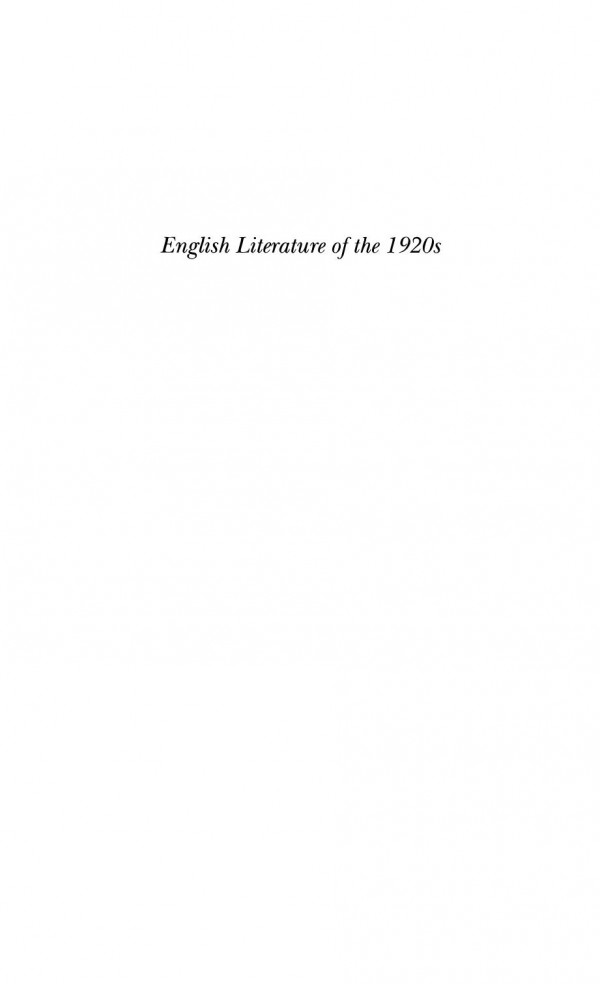

Most ebook files are in PDF format, so you can easily read them using various software such as Foxit Reader or directly on the Google Chrome browser.
Some ebook files are released by publishers in other formats such as .awz, .mobi, .epub, .fb2, etc. You may need to install specific software to read these formats on mobile/PC, such as Calibre.
Please read the tutorial at this link: https://ebookbell.com/faq
We offer FREE conversion to the popular formats you request; however, this may take some time. Therefore, right after payment, please email us, and we will try to provide the service as quickly as possible.
For some exceptional file formats or broken links (if any), please refrain from opening any disputes. Instead, email us first, and we will try to assist within a maximum of 6 hours.
EbookBell Team

4.4
52 reviewsThe English literature of the 1920s is commonly treated in terms of its position within European or Anglo-American Modernism. This book argues that the English literature of the period can be better understood when it is examined in the context of a more local social and literary history. Focusing principally on the novel, this book treats works that are regarded as modernist alongside non-modernist and popular forms, and demonstrates the engagement of these texts with a common context of social concerns, including sexuality, gender and class politics, Englishness, empire, and the cultural pessimism which informed the formation of English as a modern university subject. The book includes major new accounts of the best-known works of the period which challenge received wisdom on these subjects, including studies of D H Lawrence, Virginia Woolf and E M Forster. These accounts are set in the context of a variety figures who are now becoming better-known to the non-specialist, including Rebecca West, Wyndham Lewis, Aldous Huxley and Sylvia Townsend Warner. The First World War heralded the creation of the modern state and of a modern culture which in its essential outline remains with us. Rejecting a current trend to dismiss modernism as an elitist cultural movement, Ayers argues that the work of this period which most commands our attention remains that which most decisively articulates a critique of the emergence of modernity. The task of the critic is to disengage the utopian moment of works which seek to create a space for difference even where these works are mired in the confusions of contemporary ideology.